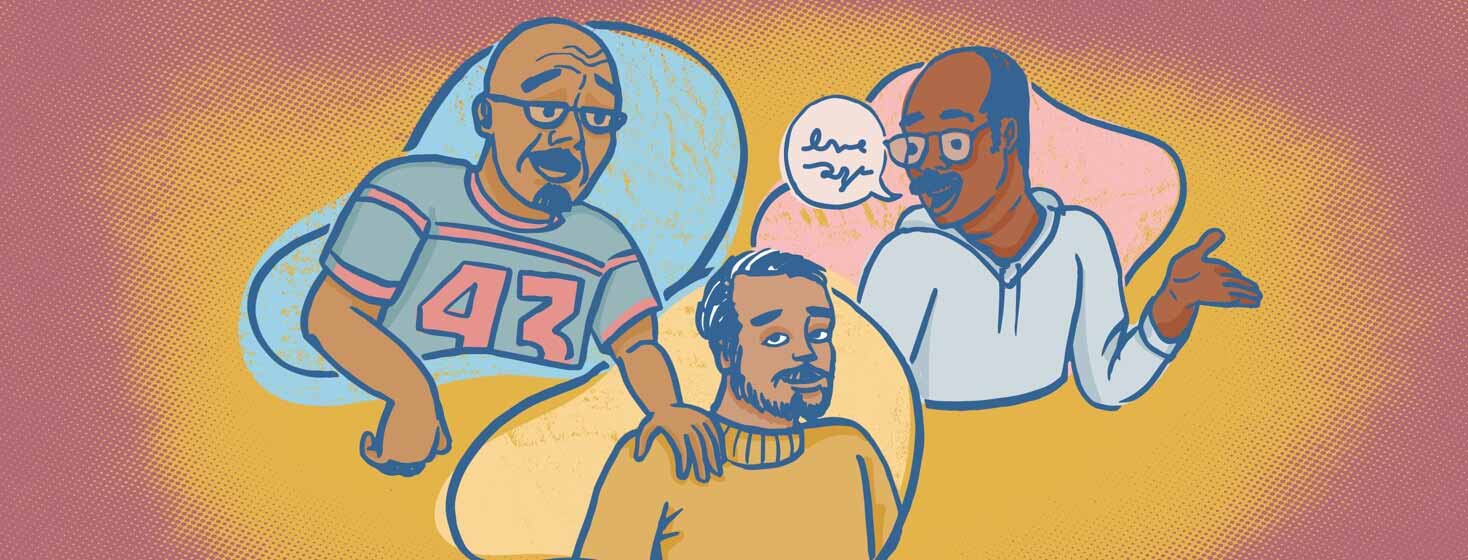The Importance of Support and Friendship though Hard Times Part I
I

In an interview with my co-author Ron Sorter about our new book, Letters In A Helmet, A Story of Fraternity and Brotherhood, Ron and I discuss the importance of support and friendship through hard times, Vietnam, bereavement, and cancer. Published on ProstateCancer.net
Ron’s service to his country
Ron relishes the challenges of leadership. In 1970, he was a First Lieutenant commanding a rifle company in Vietnam. After eight months in combat, he was severely wounded, losing a leg and spending over a year in an Army hospital.
His life is a story of service in the public, private, and community sectors. Ron assisted his brother amputees by leading Prosthetics departments in the Denver and San Diego Veteran Administration hospitals, earning their first-ever Hands and Heart Award. After obtaining a graduate degree in Artificial Intelligence from San Diego State University, he moved to the private sector as the Director of Prosthetics for a San Diego firm.
Meeting the love of his life
After meeting the love of his life, Michelle, they retired to Redstone, Colorado (population 92) and immersed themselves in the community. There, Ron was a project director for the award-winning acquisition and restoration of the town’s major historical landmark, the Redstone Coke Ovens, while co-leading the development of the local Caucus’ master plan for the entire Crystal River valley. In his free time, he rebuilt and doubled the size of their home.
After his beloved wife suffered a debilitating illness in 2013, she and Ron moved to Sequim, Washington where he cared for her in their home until her death in 2019.
A man of many talents
Ron’s Combat Infantryman Badge, Bronze Star, and Purple Heart hang proudly next to the Torch he carried in 2002, in advance of the XIX Winter Olympics in Salt Lake City. His grandsons live next door and when he’s not playing golf, painting or working on his memoir, he’s building race cars and skateboard half-pipes for them and teaching them about brotherhood.
Why is Brotherhood so important?
Ron: It’s primal. Brotherhoods start in boyhood when you pick the guys you want on your team. It’s no different than when our Cro Magnon ancestors chose which tribe members they could trust to go mastodon-hunting with them. Trust is nice to have when you and your guys are playing a round of golf. But it’s the fundamental, crucial ingredient when the same group of guys are serving in uniform together. Those brotherhoods are defined by trust.
What was it like remembering such painful memories of war?
Ron: It was brutal. It required digging up memories of horrific things that had been interred for decades. Both sides of the Vietnam War abounded with resentment. The draft lottery, introduced on live TV one night in 1969, was designed to assuage the draftee riots against the war, but it only served to cleave all young men into two groups: those who would have to serve and those who would not.
America came to hate the war and had little compassion for those who’d been sent there to serve their country. Men in uniform, especially those in combat, created tight tribes to survive that maelstrom. Those brotherhoods were steeped in trust.
Bob: I had already written The Prostate Chronicles – A Medical Memoir where I revisited that formative era of fifty years ago, including my conflicted feelings about the Vietnam War as an Army Brat.
My family’s support for Ron following his severe war injury speaks multitudes to the Deke brotherhood. In The Prostate Chronicles, I was able to make peace with my life decisions as a result of the Vietnam era. In Letters In A Helmet, I took a deep dive into those years without hesitation.
How have these life-defining events shaped your outlook?
Ron: I often tell my grandsons that pity is the first step into victimhood. Victims end up giving away all the power they’ll need to lead a determined life. My family taught me how simple it was to build and fix things. The military stoked that head-on outlook because commanding officers are responsible for everything their men do or don’t do. Officers are required, every day, to create plans to accomplish missions and that regimen has never stopped.
Pity truly has no home in a military hospital. It was inspiring to see someone more severely disabled than myself overcoming wounds far worse than my own. And there’s always the old saw that speaks to us all whenever we want pity: “Never tell people your troubles. Half of them won’t care and the other half will think you’re only getting what’s coming to you.”
Bob: At age 70 and with a great life behind me, the diagnosis of prostate cancer was just another detour on the road of life; admittedly to uncharted places. My wife Karen and the support team around me motivated me to “thread the eye of the needle” and continue enjoying life.
Read Support and Friendship through Hard Times: Part 2 when we’ll explore why it’s critical to open up about pain — coming soon.





Comments
Post a Comment